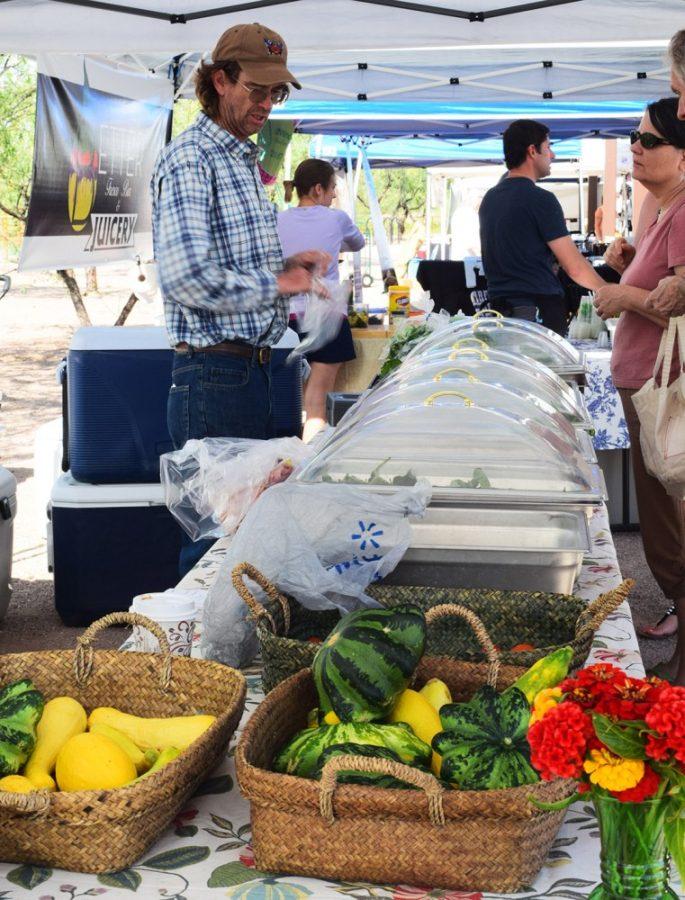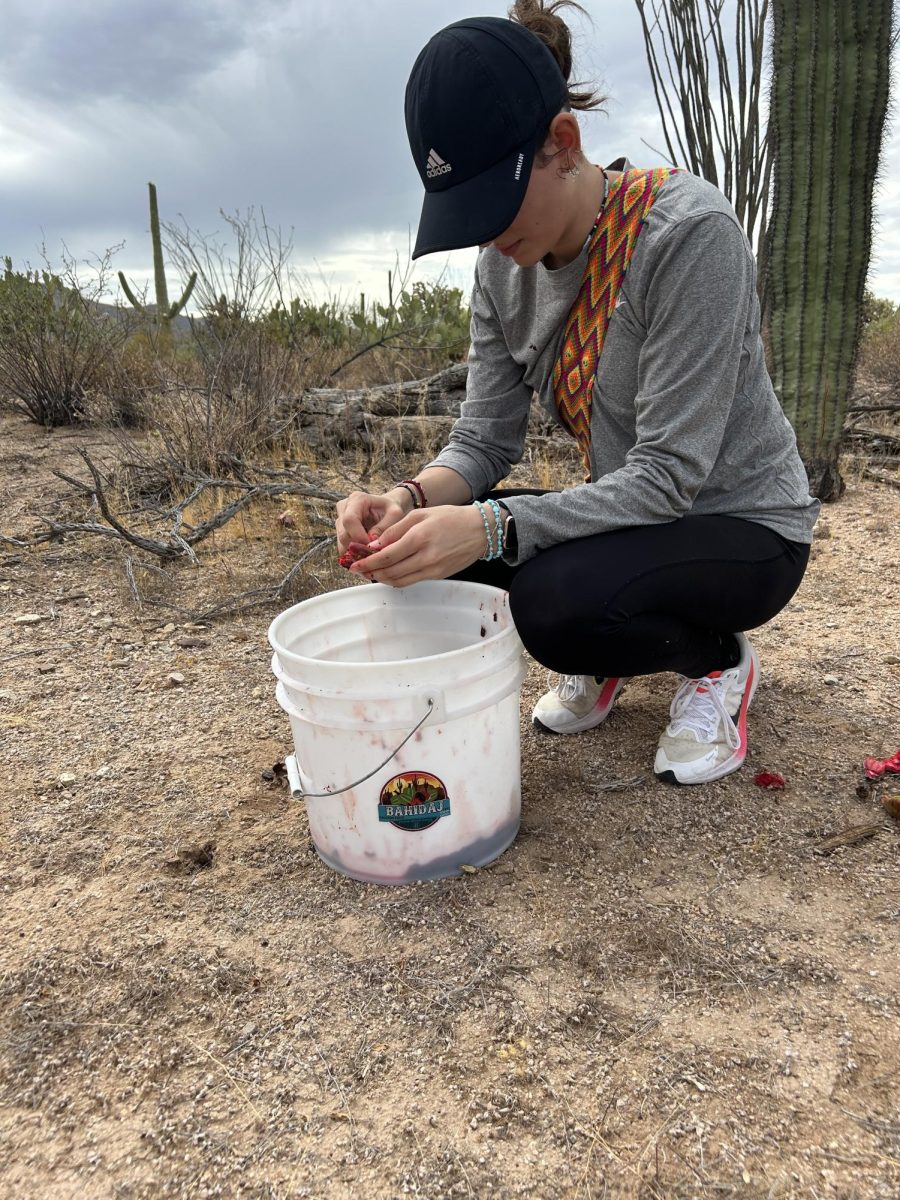Tucson doesn’t forget about its students and community members who wish to eat sustainably with fresh, locally grown meals or ingredients—in fact, it embraces them.
Sustainable eating involves cooking with the seasons and using ingredients from within a 200-mile radius of one’s city according to Roxanne Garcia, co-director of Heirloom Farmers Markets—a nonprofit group offering three markets around Tucson that support local food producers.
These markets are a part of a rising trend to provide healthier and economically sustainable eating options to the Tucson community.
“If you stay around and you support your local farmers, then that, in turn—the direct farm-to-consumer—sustains itself,” Garcia said. “It’s a self-sustaining system.”
Heirloom’s markets are based in north Tucson with the largest at Rillito Park, one at Trail Dust Town and one in Oro Valley, Ariz.
The markets are accessible by car or bus, but UA students who want to eat sustainably and find off-campus travel difficult have more on-campus options, thanks to the Arizona Student Unions and associated programs.
Arizona Student Unions, in collaboration with several other campus programs have made efforts toward providing such options according to Sarah Rokuski, a nutrition counselor for Campus Health Service.
“Of course not everything is going to be perfect at the union,” Rokuski said, “but they’re definitely making changes to include healthier food options that are more sustainable and partnering with other organizations and food producers in town to do just that.”
In collaboration with the Student Recreation Center, Campus Health and Dining Services, the Student Health Advocacy Committee offers students the opportunity to learn how to use these healthy foods through Cooking on Campus—a bi-weekly cooking class instructed by student chefs.
All classes incorporate food from Dining Services that can be prepared in dorms for students who live on campus. Students can learn several nutritious recipes with one-on-one attention from student chefs in each 45-minute class. Classes take place every other Tuesday and are capped at 20 students.
In addition to recipes, students will learn how to make the most of the food they buy.
“We don’t like to waste food, so we talk about different ways you can use it or different ways you can store the food,” said Rayna Katz, an executive board member of SHAC and coordinator of Cooking on Campus. “We’re focused on making sure that you keep well and keep the Earth well.”
In October, students and members of the Tucson community can look forward to a celebration of food at the annual Food Day Fair sponsored by Well University Partnership and the Office of Sustainability. Free food, demonstrations and other activities work to promote healthy and sustainable eating this year on Oct. 14.
Rokuski, the coordinator for the fair, said, “We educate students and attendees about their resources on campus and in the community and how they can practice healthier food choices to support their priorities.”
This year’s Food Day coincides with another event on the UA Mall—the Main Campus Farmers’ Market.
The market began as the platform for former Associated Students of the University of Arizona Sen. Ellen Dunn, who began a UA Farmers’ Market Coalition after researching the potential viability of a market on campus.
“We thought it was a great idea to incorporate the community as well as the campus itself,” said Katz, a member of the coalition. “We know that it’s very difficult sometimes for students to eat healthy and be mindful of their eating habits when they have Burger King and numerous other fast food items in the Student Union at their disposal.”
After a successful trial run in the spring semester, the Main Campus Farmers’ Market will be back from 10 a.m. to 2 p.m.every other Wednesday beginning Sept. 16. Fifty vendors are already on an early vendor list, which is expected to grow according to Clayton Kammerer, managing director of the market’s third-party business partner, FoodInRoot.
FoodInRoot began as a business model in the McGuire Entrepreneurship Program in 2011. Kammerer, a UA alumnus, wanted to create farmers’ markets by utilizing marketing practices and new technology.
“We developed the business as a blueprint to build a better farmers market and a better way of connecting small-scale food producers and consumers of food together,” he said.
What began as a small test farmers’ market for a captive audience at Rincon Country RV Resort in November 2012 has grown to include a weekly market every Friday at Banner—Health University Medical Center, and other regular markets at Northwest Medical Center, St. Joseph’s Medical Center and the St. Philip’s Plaza market.
Tucson farmers’ markets and on-campus events provide ample opportunity for students to promote local sustainability, which Kammerer said is critical to keep a community thriving.
“As long as you continue to foster and create innovation, you’re always going to have growth and development, and that is one of the key building blocks to having a sustainable system in any element,” he said.









